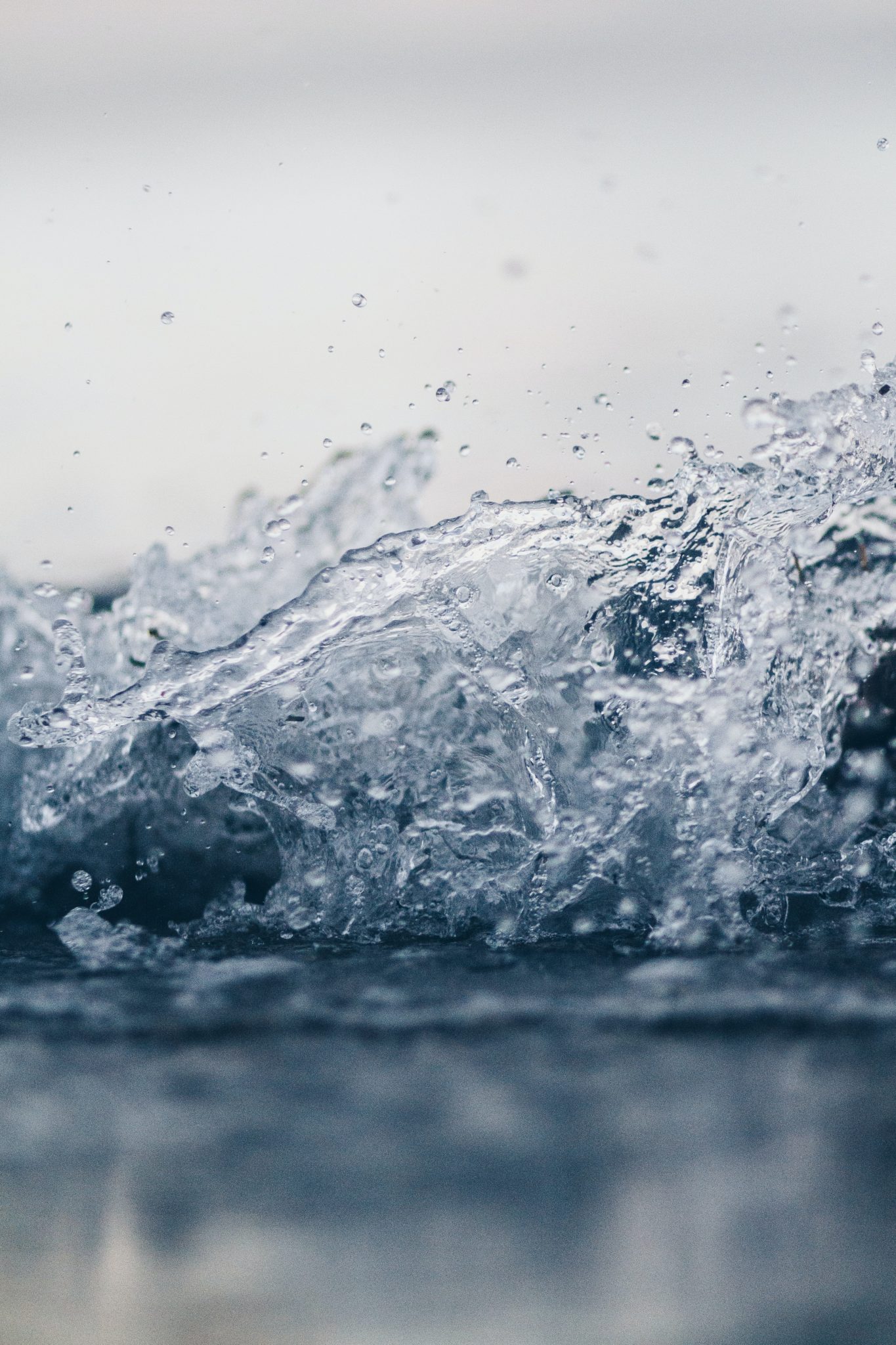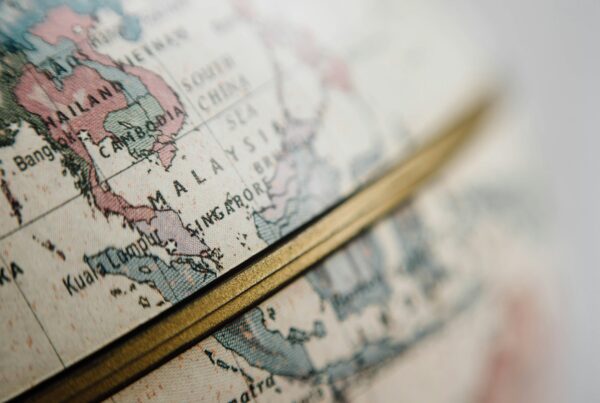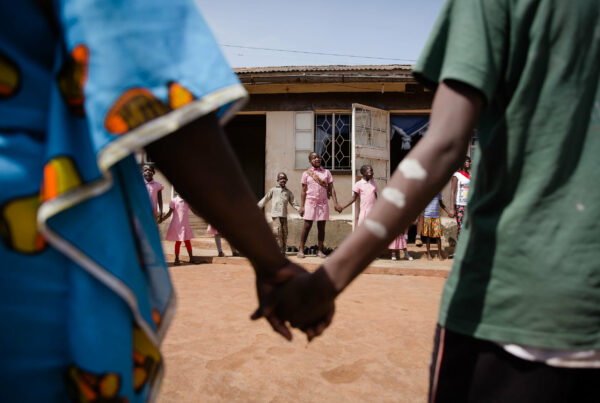Note: This story was originally published in an earlier issue (2014) of RCA Today, a magazine of the Reformed Church in America. The dates and some references in the story reflect that.
A rest stop at sunrise. A feeling of God’s presence. A 180-degree change of opinion.
As Barbara Oliviera looked out over a farmer’s field that had just been harvested, she knew what God was calling her to. And she said yes. Even though she’d been protesting strongly hours before.
She’d been driving on the freeway when she sensed God saying: Wells. I want you to do two water wells. Earlier, in her hotel room, Barbara had watched a Christian TV program about raising money to supply water wells in Africa. “Seeing the filthy water the children were drinking and the way they were dying from water-borne diseases, I didn’t have to think twice about sending in money,” says Barbara.
But now God was calling her personally to find a way to provide water wells in Africa. Her immediate response was, What?! I have too much going on. I can’t! Not now!
Not now, Lord!
“I had a number of stressful things happening in my life with illness, deaths, family,” she says. At that moment, she was on her way back home to San Francisco from L.A. after one of the trips she’d been making to help her husband, Hugh, from whom she was separated. “My children’s father was dying of cancer,” she says.
“In my travels back and forth on I-5 to care for Hugh, I had a lot of time to listen to my worship music, think about God, and be with God, talking and listening to him.” But at first, she adds, God asking her to take on water wells in Africa just seemed over the top.
Then what she’d learned about obedience and faith at New Hope Community Church in Fremont, California, began to tug at her.
“I was new to the church; a newborn Christian. Jesus seemed like a fairytale,” says Barbara. “I had a hard time believing. When people said God spoke to them, I would say, ‘Did he sound like Bill Cosby?’”
Learning to hear God’s voice
Barbara had wanted to know how people knew when God was talking to them. “Bev Day invited me to an adult Bible study she was leading called ‘Experiencing God,’ studying a book with that name by Henry Blackaby.
“I learned in Experiencing God that God talks to you through the Bible, circumstances, prayer, church, and people. Also, when God speaks to you, you should obey. And God invites you to become involved with him where he is working.
“Then I was introduced to a book at our women’s retreat in 2006. It was called If You Want to Walk on Water You’ve Got to Get Out of the Boat.”
That morning at the rest stop along I-5, Barbara Oliveira got out of the boat. Since then she has helped lead revitalization at her church by becoming a huge supporter and fundraiser for wells for the Maasai people in the African country of Kenya.
After saying “yes” to God about the water wells, Barbara says, “I got in the car, and God put certain people in my head that were going to help get this done. I called the people that were put on my heart to help start planning an event to raise money for wells in Africa.” (Barbara is a professional event planner.) “They all said yes.”
She says the committee they formed struggled to determine which Christian organization to partner with. Someone suggested calling the Reformed Church in America (RCA).
She did, and was put in touch with Derrick Jones, supervisor of RCA mission in Africa.
The pieces fall into place
In another confirmation of God’s call, in August of 2006, just a week or two before Barbara called Jones, two people who have also been at the heart of the Maasai well project—Simon Muntolol and Pat Just—met with Jones in his office to ask the RCA to consider wells for the Maasai.
Muntolol is a Maasai leader who is also a trained pastor. He organized and heads Maasai Outreach Mission, an evangelistic ministry that also coordinates the well project in Maasailand in Kenya. Under Muntolol’s leadership, and in connection with the well project, Maasai Outreach Mission has grown to include 58 thriving Maasai churches. Muntolol says that the Maasai’s acceptance of Jesus, the Living Water, has gone hand in hand with the growth of the well project. He says Maasai are amazed when they learn that Christians in the West care enough about them to raise money to drill the wells.
Pat Just, a member of the Presbyterian Church (U.S.A.), was involved in building schools for the Maasai, and had met Simon Muntolol 14 years earlier on a mission trip to Kenya. In 2006, Muntolol was in California at an anniversary celebration of the Azusa Street revival, and he met a woman there who was willing to take him to Wisconsin, where he knew Pat lived.
“When he met her, she asked, ‘Are you still drinking that dirty water?’” says Barbara, adding that Pat had seen firsthand the mud holes that were the Maasai’s only source of water. “When he said yes, Pat took Simon to see Derrick Jones to ask for help with clean water.”
Jones says Pat was friends with people at several RCA churches in Wisconsin, and they were the ones who connected her with his office. “I was brand new at my job,” he says. “When Pat and Simon came to ask about drilling wells, I told them we were certainly open to that idea. We prayed together, and just a week or two later, I heard from Barbara Oliviera.”
He told her, “We’re thinking about starting to dig a well in 2007.” Then, after an on-site visit to Kenya, Jones emailed Barbara to let her know that the RCA planned to dig two wells in Africa in 2007, and three more in 2008.
The daunting task of fundraising
After hearing from Jones, Barbara and her church started planning an event to raise funds for wells for the Maasai. The well drilling would be risky and expensive. The Maasai live in Africa’s Great Rift Valley, a massive geological formation where Earth’s crust is thin, meaning lava runs close to the surface. Barbara learned each well would cost at least $40,000. “That was a lot for a church of 100,” she says.
When Barbara and her team began planning their fundraising event, the stress in her life hadn’t let up. Not only was she still driving to L.A. to care for Hugh, her house was robbed of $10,000 in jewelry donated for auction at the event. “I called the newspaper and told them my story. It was front page, and we got donations from that. God even turned that around.”
The event, called “La Fiesta,” featured Christian bands, a silent auction, and a live auction of Raider memorabilia by Willie Brown, a star player for the Oakland Raiders in the ’60s and ’70s. “We raised $31,000, had $10,000 in expenses, and were able to send $21,000 to the RCA,” she says.
Barbara and her team have held two more events, one with a Hawaiian theme and one with a western theme. In addition, Barbara and Simon traveled throughout California making presentations to churches and community groups to raise funds. In all, another $10,000 was raised to send to the RCA for wells.
Striking water
In April 2010, Barbara went to Kenya for the dedication of the first well, traveling with two others from her church, Jim and Laurieann Olsen. In 2013, as workers were starting to drill the fifth well, Simon called her by cell phone from out in the bush so she could hear the drilling begin.
“The RCA is committed to three more wells at $50,000 a piece,” says Barbara, who plans to continue fundraising to help pay for them. “This is about more than water and helping the Maasai tribe in Kenya, halfway around the world. This is about God. This is about doing his will for his glory. This is about going where God invites you to do his work. It’s about obeying God when he calls you.
“It’s about us as a church stepping out of the boat and walking on water, knowing that Jesus is in charge.”
Update
Due to Simon Muntolol’s work with Maasai Outreach Mission and the holistic ministry of providing water and the Word, the number of churches among the Maasai has tripled. Read more here.
Ann Saigeon
Ann Saigeon was a writer and editor for the Reformed Church in America until her retirement.



